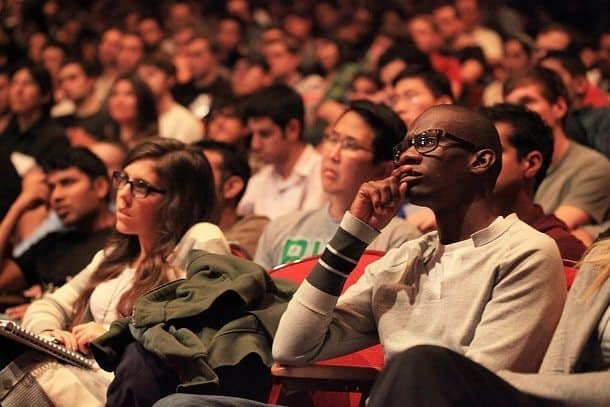
With globalisation and the increasing participation of the BRIC nations (Brazil, Russia, India, China) in the meetings and conferences industry, a greater flavor of diversity is evident in conferences these days.
An increasing number of attendees are flown in from various parts of the world, whether it is for a sales training conference of a multinational corporation or an annual conference of a medical association, or even a team building event for a company staff; there is a greater cultural mix in the audience today.
There is so much interaction and networking that takes place that it is easy to not realize that someone else could have a different approach or meaning about something. So what are we doing to face this challenge then? There is quite a lot of effort put in to satisfy the multicultural audience from a logistical and operational point of view.
For instance, conferences are providing the right food and accommodations, timings for prayer for certain cultures and even the provision of having translators or simultaneous interpretation systems for attendees who may not understand the primary language well. However, is there anything being done on the strategic side of event planning to make sure that multicultural audience learns content at an event without being left out due to the differences?
This could be tricky though. To begin with, what do you mean by culture and multiculturism? Does every individual with a certain nationality represent his/her culture? And then learning? Perhaps it is an individual personality trait?
Having said that, previous research in fact suggests that cultures do tend to have specific learning styles and preferences that are part of their cultural values.
Some cultures learn very well with interaction and discussions, with graphics and activities, while some learn better by observation, listening and reading materials, and being given time to think and apply it later. Although some cultures are open to adapting and changing their style in another learning environment, some are quite conservative and don’t want to get involved, but yet learn.
In a scenario like this, most of our conferences offer either the usual lectures by speakers or only long sessions, while some would probably mix them. But could there be a way to form new formats, or use formats and tools or techniques that could accommodate and support the learning styles of your multicultural audience? Or, are there great minds already using such plans that some of us are not aware of?
Some conferences create engaging environments with innovative formats like the Unconferences, but did they think about multicultural learning before deciding on the format? Or are we just ignoring the fact that we are not allowing all the cultures to learn equally well and take information back at the end of the day?
Indeed, various cultures have very different ways of learning and it may not be possible to satisfy them all, but do we then do a cultural background check to support their learning or do we organize the usual standard presentation or lecture by a speaker and hope everybody learns?
It was announced by IMEX’s Industrial research in July 2007 that culture would soon be a challenge that the industry would have to face, in terms of gaining a return on investment. Of course, after all like it or not, conferences are for the attendees and if they don’t learn anything or enough to apply it later then, I’d say the conference hasn’t been of great value.
I have been thinking about this for quite some time now, and now have the opportunity to do research to find out what conference organizers and planners do, and how they design their conference content to accommodate the multicultural learning styles of a their audience at the international conferences.
It would be great to talk to some planners and organizers to gather some facts and opinions to find out what is being done and how, and if not, why.
If you’re interested to participate in my research then please email me at: Anjalina.Pradhan@student.shu.ac.uk, and I would like to interview you. The benefit of participating in my research is to help understand what is being done to cater to multicultural audiences at events. Plus, you would be able to receive the results of the research study once it is complete.
Your participation could help give an insight to the conference industry on an area that appears to be often overlooked by the organizers, planners, and industry as a whole.

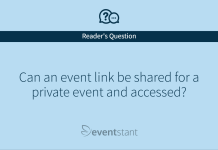
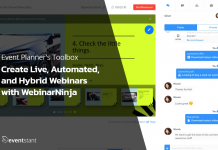
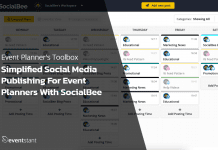

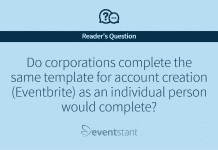

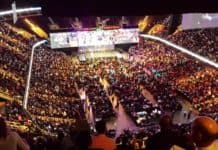

![How Important Are Face to Face Meetings [INFOGRAPHIC]](https://eventstant.com/wp-content/uploads/faceToface_v11-sm-218x150.jpg)


![How Social Sharing Drives Sales [INFOGRAPHIC]](https://eventstant.com/wp-content/uploads/social-sharing-drives-revenue-sm-218x150.jpg)
![The Ultimate Wedding Cost Checklist [INFOGRAPHIC]](https://eventstant.com/wp-content/uploads/Wedding-Checklist-1-sm-218x150.jpg)


![58.7% of Event Planners Do Not Use Social Media to Promote Events [REPORT]](https://eventstant.com/wp-content/uploads/58-of-Event-Planners-Do-Not-Use-Social-Media-to-Promote-Events-REPORT-218x150.jpg)
![Meetings Industry Has MASSIVE Impact on the US Economy [INFOGRAPHIC]](https://eventstant.com/wp-content/uploads/Meetings-Industry-Has-MASSIVE-Impact-on-the-US-Economy-INFOGRAPHIC-218x150.jpg)







[…] Multicultural audiences are very common these days at events. But do event planners take this fact in consideration when they design events? […]